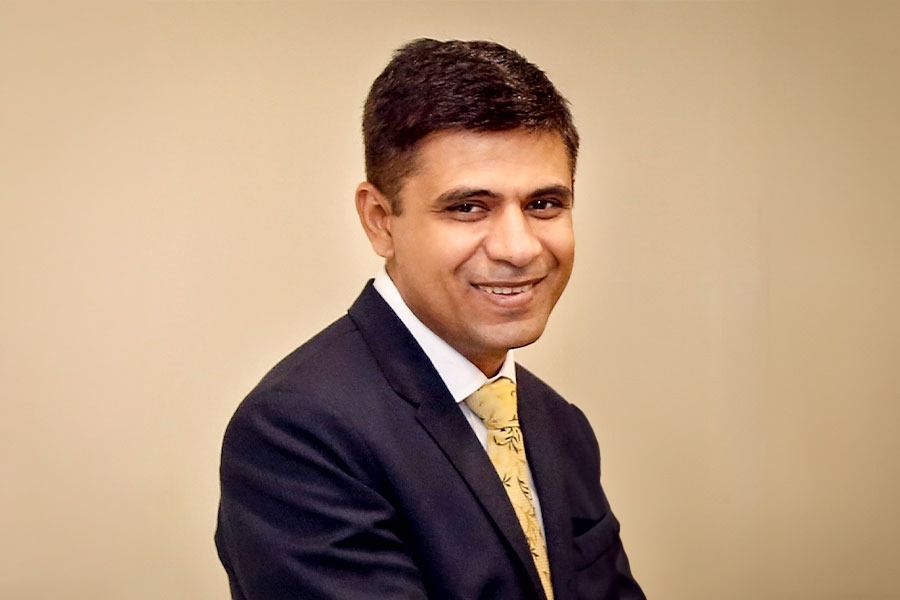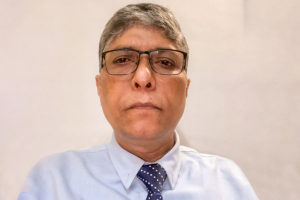India & US should resolve the H-1B issue bilaterally
Prof. Arpita Mukherjee, ICRIER, points out that many US tech companies and the US Chamber of Commerce have repeatedly raised concerns that measures to curb the movement of skilled labour will slow down the post-COVID recovery for US and they will face a serious skill shortage. She adds that it is important for countries like the US to work together with other developed and developing countries, share information, best practices and lessons learned, jointly coordinate research, and provide financial support/aid, where possible.

IBT: What implications will the decision by the US government to impose H-1B visa curbs on highly- skilled immigrants have on the American economy’s post-covid recovery?
Prof. Arpita Mukherjee: The US economy is going through high unemployment and growth slowdown due to the coronavirus pandemic. To create local employment, the US President Donald Trump suspended certain visas in June 2020 till the end of the year. The visa categories that would impact Indians include temporary work visa or H-1B and L-1 visa for internal company transfer of managers and specialized workers. Both these visas are issued to the workforce from the high-skilled sector and, in case of India, primarily the IT industry.
More than 85,000 immigrants get H-1B visas annually, and Indians are the largest recipients. Yet, the number of H-1B visas issued fall short of the requirements of US tech firms. Therefore, many US tech companies and the US Chamber of Commerce have repeatedly raised concerns that such measures will slow down the post-COVID recovery and they will face a serious skill shortage. They also pointed out that high-skilled foreign workforce has been the driver of innovation, competitiveness and growth.
Start-ups by high skilled Indian immigrants in the Silicon Valley have created local jobs and restricting them may not help to meet the objective of local employment creation. More important, the immigrant workers offer services at lower costs and it may adversely impact the cost competitiveness of the US companies.
IBT: Is COVID-19 pandemic an excuse to mask the ‘America first’ rhetoric in terms of employment? How will this move impact the employment scenario in the US?
Prof. Arpita Mukherjee: Economic slowdown can lead to protectionism, and in the past too, during the slowdown, the US implemented protectionist measures on labour mobility. In the current scenario, there may be an increase in hiring of foreign students coming out of the US universities. Some, who have lost jobs due to COVID-19 in the STEM field, may be hired. Thus, hiring in the US may increase to mitigate skill shortages. However, these may not be the most cost competitive hiring outcomes as high-skilled Indian workforce is available at a low cost. Thus, the manpower cost may rise. The COVID-19 pandemic has also created a situation of work from home and, therefore, companies may prefer to work remotely, thereby saving costs.
IBT: What repercussions will the imposition of sanctions on the movement of non-immigrants have for the IT industry in India? What options do they have to tackle this challenge?
Prof. Arpita Mukherjee: The impact on the Indian firms will be more adverse. Given that the visa ban will directly impact ability of foreign firms, especially the Indian IT companies to expand in the US, the US firms may get the projects. The Indian multinational companies may have to hire locally in the US, which will reduce their cost competitiveness. They may also adopt more offshore delivery models. There is a fear that they may have to downsize/reduce recruitment/employment in India.
IBT: How will these visa curbs shape the future enrollment of STEM students in the USA? What are the other countries that will emerge as alternative study destinations for Indian students?
Prof. Arpita Mukherjee: The current visa curb has been carefully designed to favour foreign STEM students in the US. However, given the uncertainties related to future visa curbs, several Indian students are looking at alternative destinations like Canada, UK and Australia. The choice of the destination will depend on the ability to work /get a job post degree. Therefore, countries like Canada have announced recently that international students will be allowed to work after graduation. At the same time, there are travel restrictions imposed by a number of countries from India (for example, Australia), while in other destinations like Hong Kong, China there are political uncertainties. Students may also avoid travelling to China this year, given the recent geo-political issues with India. All these factors will be considered when a student select his/her destination. As of now, the current visa ban is in favour of Indian students who are completing higher studies in the US.
IBT: Will COVID-19 bolster American unilateralism? How can India use the WTO platform to fight for its cause?
Prof. Arpita Mukherjee: It is too early to say if COVID-19 will bolster American unilateralism. While there is a negative sentiment against China, but at the same time many countries are dependent on China for finance and trade. Today, it is important for countries like the US to work together with other developed and developing countries, share information, best practices and lessons learned, jointly coordinate research, and provide financial support/aid, where possible.
While organisations such as NASSCOM, US companies, and Chambers are lobbying against the visa curb, India needs to be very careful against imposing any protectionist restrictions on the US companies and lobby smartly to reduce the duration of visa ban. This is a time when India and the US can work together to resolve any issues bilaterally. The US made a commitment of 65,000 H-1B visas in the WTO. One must see if this number is met. If not, it can be raised in the WTO.
However, if the Dispute Settlement Body does not work, it will be better for India to lobby on the H-1B issue bilaterally than taking the matter to the WTO. India lost the subsidy case against the US in November 2019 and decided to continue with the subsidies till March 2021. The US may take a similar position.
Dr Arpita Mukherjee is a Professor at ICRIER. She has several years of experience in policy-oriented research, working closely with the Government of India and policymakers in the EU, US, ASEAN and in East Asian countries. She has conducted studies for international organizations such as ADB, ADBI, ASEAN Secretariat, FCO (UK), Italian Trade Commission, Konrad-Adenauer Stiftung (KAS), OECD, Taipei Economic and Cultural Centre (TECC), UNCTAD and the WTO and Indian industry associations such as NASSCOM, FICCI, IBA, IDSA and EICI. Her research is a key contributor to India’s negotiating strategies in the WTO and bilateral agreements. The views expressed here are her own.













Leave a comment